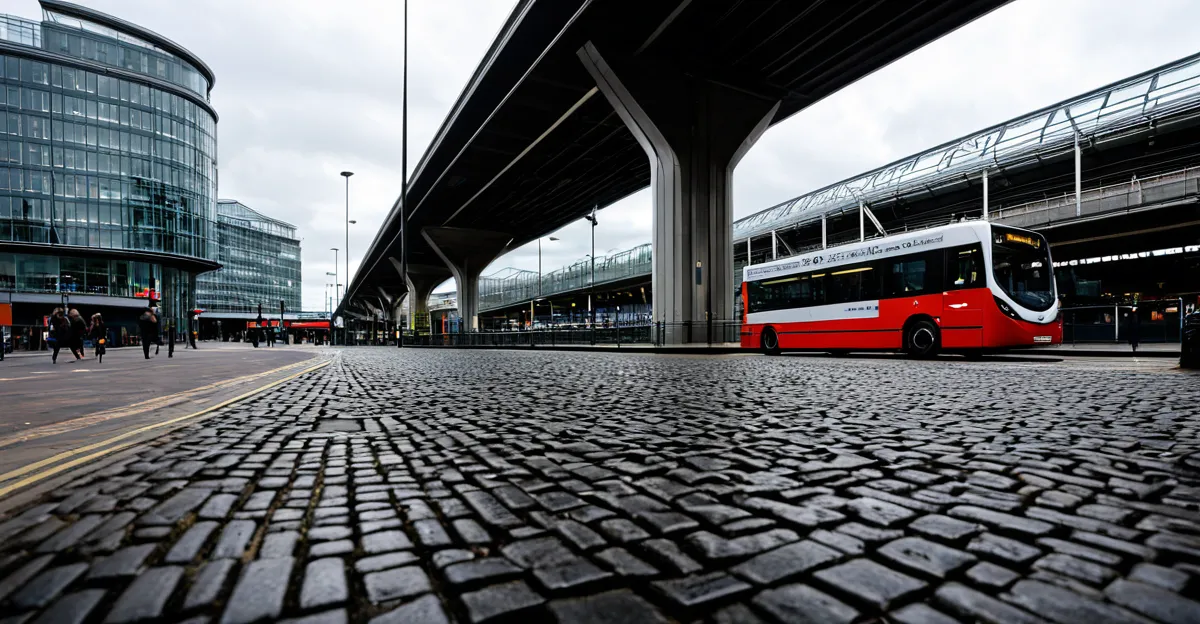Key technological advancements driving urban infrastructure improvements in the UK
UK smart city technology is rapidly transforming urban landscapes by embedding smart sensors and Internet of Things (IoT) solutions throughout city management systems. These sensors collect real-time data on traffic flow, air quality, and energy use, enabling local authorities to make informed decisions that optimize urban functionality and sustainability. This digital infrastructure UK approach enhances connectivity and responsiveness, critical for effective city governance.
Artificial intelligence (AI) further advances urban innovation by analyzing complex datasets to predict traffic patterns and plan resource distribution efficiently. For example, AI-powered predictive models help manage peak traffic times and adjust public transport routes dynamically. This results in smoother commuting experiences and reduced emissions, aligning with broader environmental targets.
Also read : How are UK tech companies addressing sustainability challenges?
A crucial aspect of urban innovation is the adoption of sustainable energy systems. UK cities are integrating renewable energy sources, such as solar panels coupled with smart grids, to create self-regulating energy ecosystems. This shift supports sustainability goals and reduces the carbon footprint of urban areas while ensuring stable and affordable energy supplies.
Together, these advancements form the backbone of the UK’s urban innovation strategy, driving smarter, cleaner, and more efficient cities. By leveraging smart sensors, AI, and sustainable energy, the digital infrastructure UK is revolutionizing urban living and positioning the country as a leader in technology-driven urban development.
In parallel : How Can UK’s Emerging Tech Hub Propel Economic Growth?
Prominent case studies and examples of technology in action
UK urban infrastructure projects offer concrete insights into how UK smart city technology and urban innovation manifest in real environments. Examining smart city case studies reveals tangible benefits and challenges faced during implementation, solidifying the importance of digital infrastructure UK in these successes.
London’s smart traffic management systems exemplify advanced use of real-time data. By integrating IoT sensors and AI-driven analytics, the city optimizes signal timings and monitors congestion. This technology reduces travel times and lowers pollution, demonstrating how UK urban infrastructure projects can improve daily life by leveraging technology for smarter traffic control.
Manchester’s citywide IoT rollout focuses on installing vast networks of sensors to monitor environmental conditions and infrastructure health. These sensors generate actionable data, allowing municipal authorities to allocate resources efficiently and maintain urban amenities proactively. This initiative highlights the role of UK smart city technology in creating responsive and sustainable urban environments.
Glasgow’s sustainable urban mobility initiatives showcase progress in eco-friendly transport solutions. The city employs connected technology to facilitate electric vehicle charging infrastructure and promote shared mobility services. This initiative aligns with urban innovation goals to reduce carbon footprints and improve accessibility, illustrating how digital infrastructure UK supports greener, more inclusive transport networks.
Together, these examples underscore the practical application of UK smart city technology, urban innovation, and digital infrastructure UK in enhancing city management and sustainability. Their successes offer valuable lessons for future urban development projects across the UK.
Government initiatives supporting urban technology transformation
Government initiatives play a pivotal role in accelerating urban innovation and enhancing digital infrastructure UK. One of the primary drivers is the UK government’s commitment to funding frameworks that promote smart city projects through public-private partnerships. These partnerships pool resources and expertise from both sectors, enabling scalable deployments of UK smart city technology across municipalities.
The National Smart Cities Strategy provides a structured roadmap for urban technology adoption nationwide. This strategy outlines key priorities such as improving connectivity, integrating IoT networks, and fostering sustainable urban growth. In tandem, programs like the Future Cities Catapult serve as innovation hubs, supporting pilot projects and encouraging collaboration among tech companies, academia, and local authorities.
Regulatory updates align closely with sustainability goals, ensuring smart city technologies comply with environmental standards while enhancing service delivery. For example, policies incentivize the adoption of renewable energy within urban infrastructure and encourage data sharing among stakeholders to optimize city operations. Together, these UK government urban policy efforts create a supportive environment for advancing digital infrastructure strategy UK and embedding smart technologies into everyday city life.
Measurable impacts and improvements in UK urban infrastructure
Urban infrastructure benefits UK cities significantly through technology-driven enhancements. One of the most notable impacts is enhanced traffic flow and congestion reduction. By leveraging UK smart city technology such as real-time sensor data and AI traffic management systems, cities achieve smoother vehicle movements and lowered commute times. This directly improves air quality by reducing emissions produced during standstills, demonstrating clear measurable outcomes.
Improvements in public transport efficiency and reliability are another evident benefit linked to urban innovation. Digital infrastructure UK investments support dynamic route planning and predictive maintenance, minimizing delays and service interruptions. Public transit users experience more dependable and frequent services, boosting ridership and reducing reliance on private vehicles.
Increased energy efficiency and reduced urban carbon footprint also stem from technological integration. UK smart city technology enables monitoring and balancing of energy consumption via smart grids and renewable sources. These advancements contribute to meeting sustainability targets while promoting cost savings and resilient urban energy systems.
Collectively, these measurable outcomes prove the technology impact assessment of UK’s digital infrastructure underscores substantial progress in making cities cleaner, faster, and more sustainable.
Leading UK companies and organisations pioneering urban innovation
Several prominent UK tech companies and infrastructure startups UK are at the forefront of advancing urban innovation. Siemens, for example, plays a critical role in delivering integrated smart city solutions by combining IoT sensor networks with AI-driven analytics. Their expertise enables cities to optimize energy use and enhance transportation systems, contributing directly to more efficient digital infrastructure UK ecosystems.
BT is another key player, deploying advanced communication networks that form the backbone of urban digital connectivity. Their infrastructure supports data transfer from smart sensors across the city, facilitating real-time monitoring and decision-making crucial for responsive urban management. This integration amplifies the effectiveness of UK smart city technology by ensuring seamless communication between devices and city operators.
Startups focused on sustainability and transport innovation add cutting-edge capabilities to the urban landscape. Companies developing electric vehicle charging infrastructure, shared mobility platforms, and energy management tools introduce scalable solutions that address emissions reduction and accessibility. These innovators are essential to the ongoing transformation of UK cities, fostering new models of urban living aligned with broader environmental goals.
University-led research projects also contribute significantly by pioneering novel technologies and analyzing data from urban testbeds. Collaborations between academia and industry accelerate the development of practical applications in areas such as sensor technology, AI, and renewable energy integration. These efforts underpin sustained progress in urban innovation and reinforce the UK’s position as a leader in smart city development.








